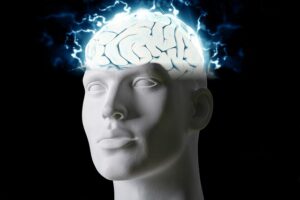
The human brain is a complex organ that does a lot of heavy lifting. It’s responsible for our thoughts, memories, emotions, and movements.
It’s also responsible for our sense of self and our ability to interact with the world around us.
Despite all of its responsibilities, the brain is a surprisingly resilient organ.
It can recover from injuries, adapt to changes in the environment, and even rewire itself in response to new experiences.
It’s no wonder, then, that scientists are fascinated by the brain. And recent research has shown that there are many good reasons to be grateful for our brains.
For example, studies have shown that the more grateful you are, the less likely you are to suffer from depression. And research has also shown that practicing gratitude can have a significant impact on your happiness and health.
Brains are composed of cells
So why is the brain so good at making us happy?
One reason maybe because it’s composed of special cells called neurons. These cells are responsible for transmitting information throughout the brain.
The more neurons you have, the better your brain function will be. And research has shown that people with more neurons tend to be happier and more successful.
And the cells in your brain aren’t just limited to neurons.
If you looked at a cross section of one small part of the brain called the cortex, you would see that it is composed of six layers.
These layers are made up of support cells known as glial cells that provide nutrients and insulation for neurons.
So as you grow and learn, your brain gains new cells (and therefore more knowledge) by producing glial cells. So not only does neuroplasticity allow your brain to adapt, but it also makes new brain cells so that you can adapt even further.
The human brain is an organ of extreme complexity and resilience.
But we still have a lot to learn about the brain, and just how deeply it affects our lives.
Counting neurons in the brain
While there are about 100 billion neurons in the brain, not everyone has the same number. Some people have more and some people have less.
Interestingly, people who have more neurons tend to be smarter and happier. And they also tend to live longer.
So what can you do to increase the number of neurons in your brain? The good news is that there are things you can do to actually grow new neurons.
One of the most popular techniques for increasing neuron growth is known as a brain workout.
A brain workout involves using your brain, learning new skills, and challenging yourself to think in different ways.
Brain workouts involving physical activity have been shown to increase both the number of neurons and the amount of gray matter in the brain.
And learning new skills can help keep your brain active and healthy as you age.
How many brain cells does a kid have
So how many brain cells do kids have? The answer is, they have a lot of them. Kids are born with about 100 billion neurons, and they keep adding new ones until they reach adulthood.
In addition to adding new neurons, kids also have a lot of connections among their neurons.
In fact, kids have so many connections that they can learn a new language in just a few days.
But as they get older, these brain connections start to disappear, and it takes more effort to learn the same things.
So how can you help your kid develop his or her brain?
Here are a few tips:
- Encourage creativity – Studies have shown that children are more creative when they are less supervised.
- Encourage face-to-face interaction – Kids learn language skills faster when people talk to them in person rather than through a screen
- Get physical – Getting plenty of exercises helps kids develop both their motor and thinking skills.
You can also help your kid by practicing gratitude, meditating, and doing yoga.
How many brain cells does a teenager have
As kids get older, they keep adding new brain cells, but they also start losing some of the old ones. This is natural and happens as the brain matures.
In addition to losing brain cells, teens also start to lose connections between their neurons. This can make it more difficult to learn new things.
But there are things you can do to help your teen learn and grow.
Here are a few tips:
- Encourage creativity – Teens who are creative tend to do better in school.
- Encourage socializing – Teens who have strong social skills tend to be more successful later in life.
- Get physical – Exercise is not only good for the body but it’s also good for the brain.
Encourage mindfulness – Teens who practice mindfulness have better mental health and are less likely to get addicted to drugs or alcohol.
- See also: Is it true that humans only utilize 10% of their brain capacity?
- See also: Incredible brain facts that you should know
All of those neurons must be powered
Your brain is not only responsible for your happiness, it’s also responsible for the control of all of your muscles. And this requires a lot of power.
That’s why you need to keep your neurons well-fed with lots of good nutrients.
The foods that are best for keeping your neurons healthy are things like dark chocolate, blueberries, and omega-3 fatty acids.
These foods are high in antioxidants, which help protect your cells from damage. And they also contain a lot of vitamins and nutrients that your brain needs to function properly.
Your brain’s growth isn’t limited to the number of neurons you have—it’s also important what those neurons are doing.
That’s why it’s so important to keep them working by continuing to challenge yourself mentally and physically.
Conclusion
So, how many brain cells do you have?
The answer is that you have as many brain cells as you need. You can keep adding new ones by challenging yourself mentally and physically. And you can keep your neurons healthy by eating a balanced diet and getting plenty of exercises.
So go ahead and give your brain a good workout!
Brain health is in your hands. You can keep the neurons growing and working with mental and physical challenges, just like you do to build muscles when you workout. And don’t forget about getting sufficient sleep!



